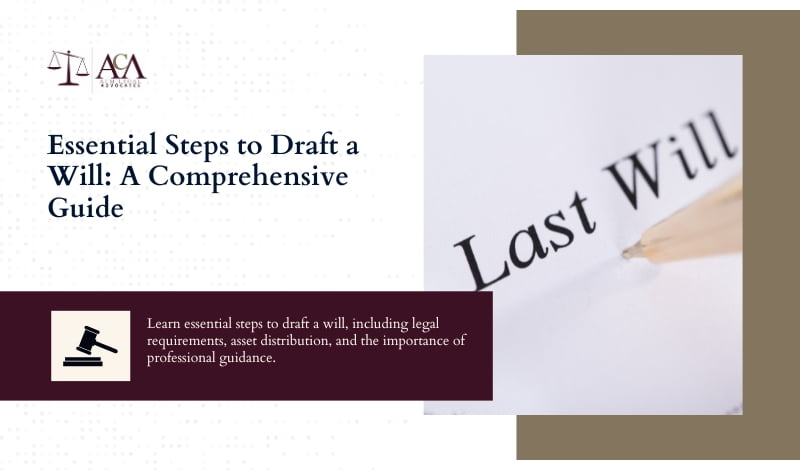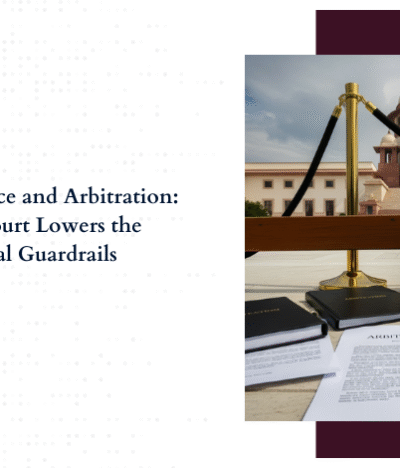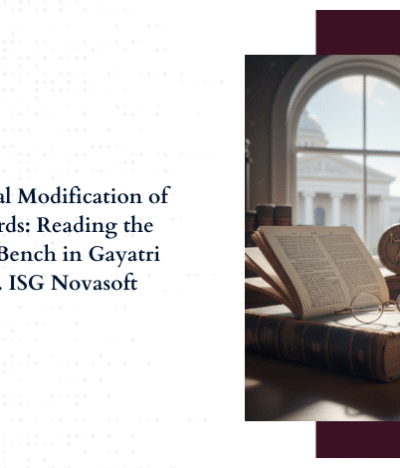What are the essentials to draft a will? Drafting a will is a critical step in ensuring that your assets and estate are distributed according to your wishes after your demise. A well-prepared draft of a will deed can prevent legal disputes. Engaging a lawyer to draft a will is highly recommended to navigate the complexities involved and to ensure that your will is legally sound and enforceable.
A professionally drafted will, often done by a skilled lawyer, can help in specifying your wishes accurately. Additionally, ensuring that the will complies with all legal requirements and is properly witnessed can protect it from being contested in the future.
Understanding How to Draft a Will
A will is a formal statement that directs the voluntary distribution of assets after death. The will as per Section 2(h) of The Indian Succession Act of 1925 means the legal declaration of the intention of the testator with respect to his property which he desires to be carried into effect after his death. Will drafting ensures that the assets of the testator are distributed according to the wishes.
Key components of a will
Will must state the testator’s desire to make disposal of his or her property that takes effect after his or her death. In order to draft a will, the following components must be there:
Introduction and Identification: This section includes the full name, address and a declaration stating that the document is the person’s last will and testament.
Appointment of an Executor: The will should name an executor who will manage the estate, pay debts, and distribute assets according to the will’s instructions.
Beneficiaries: This part lists the individuals or organizations who will receive the deceased’s assets. It can include specific bequests (particular items or amounts of money) and residuary bequests (everything else left after specific bequests are distributed).
Distribution of Assets: Detailed instructions on how the assets should be distributed, including real estate, financial accounts, personal property, and digital assets.
Guardianship of Minor Children: If applicable, the will should name a guardian for any minor children, ensuring their care if both parents are deceased.
What is a legally valid Will?
While drafting a will, it must be essentially ensured that there must be a legal declaration concerning the property of the testator and the declaration must be intended to operate after the death of the testator. The will must establish validity and credibility ensuring that the testator’s wishes are carried out as intended.
- Legal Age and Mental Capacity: The testator must be of legal age (usually 18 or older) and of sound mind, meaning they understand the nature of the document and the consequences of their decisions.
- Written Document: The will must be in writing. Oral wills are generally not accepted, except in very rare and specific circumstances.
- Clear Intent: The document must clearly state that it is the testator’s will and reflect their intention to distribute their assets accordingly.
- Witnesses: The document will be signed in the presence of at least two witnesses, who must also sign it. The witnesses should be disinterested parties, meaning they do not stand to benefit from the will.
- Signature: The will must be signed by the testator.
- Notarization: While not always required, having the will notarized can help establish its authenticity and may simplify the probate process.
Step-by-Step Guide to Draft a Will
Step 1: List Your Assets
Clearly outline all your assets, including real estate, financial accounts, personal property, and sentimental items. Specify who will receive each asset. For complex assets or significant estates, consulting a lawyer to draft a will can help navigate the complexities and ensure clarity.
Step 2: Identify Your Beneficiaries
Beneficiaries are the individuals who will receive your assets. Be specific when naming beneficiaries to avoid confusion. Include full names and, if applicable, their relationship to you. You can also designate alternate beneficiaries in case the primary ones predecease you or are unable to accept the inheritance.
Step 3: Appoint a Trusted Executor
The executor is responsible for carrying out the instructions in your will. You can choose a trusted family member, friend, or a professional executor like a lawyer. It’s crucial to ensure the chosen person is willing and capable of handling the responsibilities.
Step 4: Designate a Guardian for Minor Children
If you have minor children, it’s essential to appoint a guardian in your will. This ensures your children are cared for by someone you trust. You can also specify a backup guardian in case the primary guardian is unable to fulfill their role.
Step 6: Fulfil Legal Requirements
Wills must comply with state-specific laws regarding execution which involves signing the will in the presence of witnesses who also sign the document. Some states may require notarization as well.
Step 7: Periodically Review and Update Your Will
Life changes such as marriage, divorce, the birth of children, or acquiring new assets necessitate updating your will. Regular reviews ensure it reflects your current wishes and circumstances.
Common Mistakes to Avoid When You Draft a Will
Drafting the Will Incorrectly
If any of the details in the Will are not precise, it can be easily challenged in court. So, make sure while Will drafting, you enter all the essential personal details, including name, address, place and date, correctly; put in the full name and relationship of beneficiaries; mention the assets precisely; have it done in the presence of two witnesses; and sign it along with the witnesses and their details.
Not Being Specific & Detailed
A vague will is another error that can be questioned in the court. The will should be extremely detailed to avoid any future confusion and dispute among family members. To make your will precise, ensure that you list all your assets, movable and immovable, in great detail. As for heirs, do not forget to mention the full name and your relationship with the specified person, as well as the assets you want to pass on to them.
Not Updating the Will
The will is to be updated with any changing event. There is no limit on the number of times you can update the will. The changes such as the birth of a child, marriage or divorce will call for a redistribution of assets. Similarly, if any asset has been sold or new ones bought during the testator’s lifetime, these will have to be removed or included in the list as per the owner’s.
Failure to Meet Legal Formalities
Each jurisdiction has specific legal requirements for a will to be valid, such as the number of witnesses, the presence of the testator and sometimes notarization. Failure to meet these requirements can result in the will being declared invalid. Ensure you understand and follow these requirements.
Why to Seek Professional Help When you Draft a Will?
A professional help may be needed at any time when you draft a will. You could appoint a lawyer to draft will. A professional could help you in drafting a will on your behalf, investigating the authenticity of the Will and to look for visible loopholes, for filing a probate petition or for contesting against the Will in the court of law. It is considered to be on the safer side if a Will is drafted by a lawyer according to the will and intent of his client especially when a huge amount of property is involved.
Certain situations requires legal expertise:
- Complex family dynamics or contentious relationships among beneficiaries.
- Specific requirements under Indian law for a valid will.
- Benefits of hiring a lawyer include ensuring legal compliance and minimising the risk of disputes.
Conclusion
Drafting a will is a vital step in estate planning to ensure your wishes are respected. The steps mentioned for drafting a Will could be followed to avoid any confusion or potential disputes later on. Seeking proper professional legal guidance when needed, helps you with the complexities of legal procedure and can create a robust will that stands the test of time.
Secure Your Legacy with ACM Legal
Don’t leave your estate planning to chance. Contact ACM Legal today to ensure your draft a will process are handled with precision and legal expertise. Our experienced lawyers are dedicated to helping you navigate the intricacies of will drafting, ensuring your assets are distributed according to your wishes and protecting your loved ones from potential disputes.
FAQs on Drafting a Will
1. What are the key components that should be included in a will?
The draft of will deed to render it valid should include the following key components:
- Information of the testator, the person who is making the Will and declaration of testamentary capacity;
- Appointment of an executor to administer the estate, can be a relative, family member or professional;
- Distribution of assets to named beneficiaries;
- Guardianship provisions for minor children, if applicable; and
- Signatures of the testator and witnesses, meeting state-specific legal requirements for execution. These components ensure clarity and enforceability, guiding the distribution of assets and fulfilling the testator’s intentions after death.
2. How do I choose the right executor for my will?
To choose the right executor, you must consider competence, trustworthiness and willingness to undertake the responsibilities of an executor, the person capable of handling financial and administrative tasks impartially. Family members or close friends could be the right choice as they know your wishes.
3. What legal requirements must be fulfilled to make a will valid?
A valid will should be decided by the factors including:
- Every person who writes a will must be of 18 years of age or above.
- The testator must be of sound mind, he must know that he is drafting a valid will and what will have consequences.
- A person has the intent to form a valid will.
- The Will should be written and duly dated, signed and witnessed.
Requirements vary by jurisdiction but typically include witness signatures and notarization.
4. How often should I review and update my will?
Regular reviews are advisable, especially after significant life events such as births, deaths, marriages or divorces. It reflects your current wishes and circumstances. Additionally, revisions may be necessary if there are changes in state laws affecting estate planning or tax regulations.
5. Can I draft a will without a lawyer, and what are the potential risks?
Yes, you can draft a will without a lawyer but this may involve potential risks such as avoiding the critical legal requirements that a professional can only guide you about. A Will made without legal advice could result in disputes or unintended consequences after your death. Consulting a lawyer to draft will ensure your will accurately reflects your intentions and complies with state laws.






